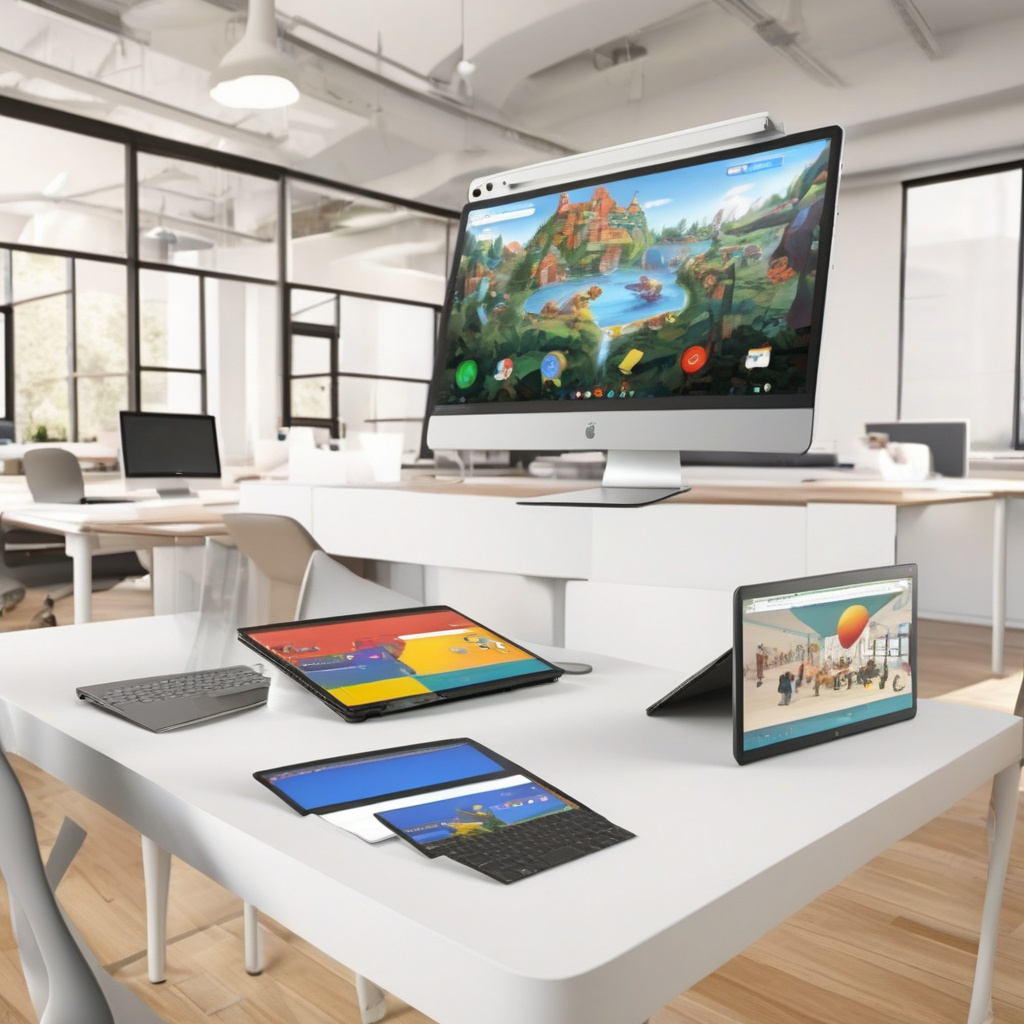Google’s recent move into the realm of AI-powered ChromeOS PCs marks a significant strategic shift in the tech landscape. With Microsoft’s genAI technologies gaining momentum in Windows 11, Google aims to establish Gemini AI services within ChromeOS to compete head-on with Microsoft’s Copilot offerings.
In a bid to counter Microsoft’s Copilot+ PCs, Google has introduced Chromebook AI PCs equipped with specialized neural chips capable of executing genAI tasks locally. This move not only diversifies the market but also presents users with a compelling alternative to traditional Windows-based AI PCs.
Lenovo’s recent launch of the Chromebook Plus 14, featuring a MediaTek AI chip running at an impressive 50 TOPS, exemplifies Google’s commitment to advancing AI capabilities within the Chromebook ecosystem. This technological leap underscores Google’s dedication to enhancing user experiences through cutting-edge hardware.
As IT buyers grapple with the impending shift to Windows 11 due to the end of support for Windows 10, Chromebooks emerge as a viable option, particularly in education markets like the US and Japan. While not posing a direct threat to Windows, Chromebooks offer a distinct choice for users seeking innovative AI solutions.
Despite the enthusiasm surrounding AI PC upgrades, many buyers lack clarity on harnessing the full potential of specialized AI chips. The industry trend leans towards future-proofing hardware and preempting potential price hikes rather than maximizing the utility of AI capabilities.
Google’s integration of Gemini AI into Workspace apps and the potential for client-side acceleration through AI chips in browsers signal a new era of AI-driven productivity tools. By leveraging NPUs in Chromebooks, Google aims to enhance performance and efficiency across its ecosystem.
In the broader context of AI adoption, factors like security, compliance, and performance efficiency will shape the preferences of businesses and enterprise users. The evolution of small language models and their impact on specific tasks will be pivotal in driving AI PC adoption in various sectors.
Ultimately, the rivalry between Google’s Gemini and Microsoft’s Copilot signifies a larger battle for dominance in the AI landscape. As AI continues to permeate different facets of technology, the development of SLMs and multi-modal interfaces will be critical in determining the success of AI-powered devices.
In conclusion, Google’s foray into AI-enhanced ChromeOS PCs represents a bold step towards revolutionizing the PC industry. By challenging Microsoft’s AI dominance and emphasizing user-centric innovation, Google sets the stage for a dynamic competition that will shape the future of AI-driven computing.

